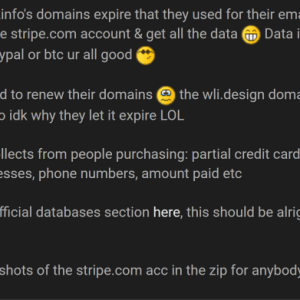Over 25,000 Coinbase users have been compromised in a phishing campaign in over two weeks with 69% of the fraudulent correspondence originating from India, followed by Brazil and the US.
An upgraded version of z0Miner, a cryptomining botnet, has been found attempting to take over Jenkins and ElasticSearch servers to mine for Monero cryptocurrency.
Last month, researchers from the Sakura Samurai hacking group had partially disclosed that they had breached the cyber systems of the Indian government after finding a large number of critical vulnerabilities.
The UK’s National Cyber Security Centre has reminded Brits to patch their Microsoft Exchange Server deployments against Hafnium attacks, 10 days after the US and wider infosec industry shouted the house down saying the same thing.
A cyber attack took place at Molson Coors breweries based in Milwaukee. It looks like the hack was crippling, leaving the brewery unable to produce beer at the time of the attack.
The Biden administration will respond “in weeks, not months” to the perpetrators of the SolarWinds hack, who used the U.S. tech company as a springboard to compromise a raft of U.S. government agencies, a senior administration official said on
Google has published the proof-of-concept (PoC) code that confirms the practicality of Spectre exploits against JavaScript engines. The PoC code is expected to work against all modern browsers.
WeLeakInfo.com was a data breach notification service that was allowing its customers to verify if their credentials been compromised in data breaches. The service was claiming a database of over 12 billion records from over 10,000 data breaches.
A new botnet is hunting down and transforming infected routers, DVRs, and UPnP network devices into honeypots that help it find other targets to infect. The botnet comes with support for x86, ARM, MIPS, and other CPU architectures.
The operators of Lemon_Duck, a cryptomining botnet that targets enterprise networks, are now using Microsoft Exchange ProxyLogon exploits in attacks against unpatched servers.









